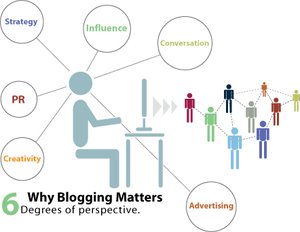

Crisis Communication
In this day and age you cannot predict when a crisis might hit your corporation. Crisis might be a terror attack, a major product recall due to death and injury, workplace violence or a nasty scandal. 9/11 terror attacks proved that companies should be prepared for anything. In the case of 9/11, the airlines industry lost out due to the fear of flying by the travelers got due to the terror attacks. Pharmaceutical companies are always on the toes afraid that one of its drugs might cause a death. It would be necessary for a product recall causing huge amounts of financial loss not to mention the loads of bad publicity generated due to the death. In today’s active media which is blood thirsty for news, any organization can be affected a great deal in a matter of hours or days. A scandal like in Enron might immediately undermine a huge corporation and rocket the stocks of the company downwards affecting thousands of stockholders and employees of the company. Any issue of public importance will be blown out of proportion by the media to get their TRP ratings up. In times of crisis like these companies should be ready with plans to deal with the crisis.
Crisis communication is part art and part science. It may be having the right people say the right thing in the media or accepting the reason for the crisis and diffusing before it gets big. But to have the right people in place to say the right thing people should be trained. Sometimes a corporate apology might diffuse the situation but somebody should decide if an apology is necessary because apology might be misunderstood as acceptance of responsibility. Brilliant communicators are needed to apologize for the crisis but ensure that the company is not accepting the responsibility of the crisis. A crisis communication plan should be in place to tackle the crisis. A plan will help the company because during times of crisis the company management might be frozen by indecision. An ideal plan will detail a step by step process to be followed during times of crisis. During indecision it is best to follow a process rather than following an ad hoc approach. But having a plan might also be dangerous because the plan might give media and the public that the company already knew the crisis and was ready with the necessary press releases. A defined process might not be suitable for all crisis situations. Hence there must be a team in every company who will handle communication in times of crisis.
Another important aspect of crisis communication is consistency. The actions of the company should follow the company spokespersons’ words. A company cannot call for recall of a product but do little to send out necessary communication to the users and not setup facilities to facilitate the recall. During times of crisis a team should monitor all communications going outside the company and communications sent internally to employees. All external and internal communication should be consistent and should follow the guidelines created by the crisis communication team. Crisis communication plan and teams plays a very vital role for a company during the times of crisis.

During the Tylenol scare of 1982, Johnson & Johnson handled the crisis very effectively. In 1982, seven people died after consuming extra strength Tylenol capsules. The capsules were laced with potassium cyanide by unknown perpetuators in supermarkets. Johnsons & Johnson after finding out about the deaths immediately distributed warnings to hospitals and distributors after immediately halting the production of Tylenol. It also recalled 31 million bottles that were in circulation which would have given Johnson & Johnson $100 million in revenue. It also advertised in the national media not to consume any Tylenol capsules. It also offered to exchange capsules for tablets. All these actions helped Johnson & Johnson to convince the media and public that J & J was intent on the safety of the public. By the recall it convinced the public that it was worried about them rather than its own financial health.
Some links that were used are
http://www.levick.com/resources/topics/crisis/corpCrisis.php
http://news-info.wustl.edu/news/page/normal/4352.html
http://en.wikipedia.org/wiki/1982_Chicago_Tylenol_murders


No comments:
Post a Comment